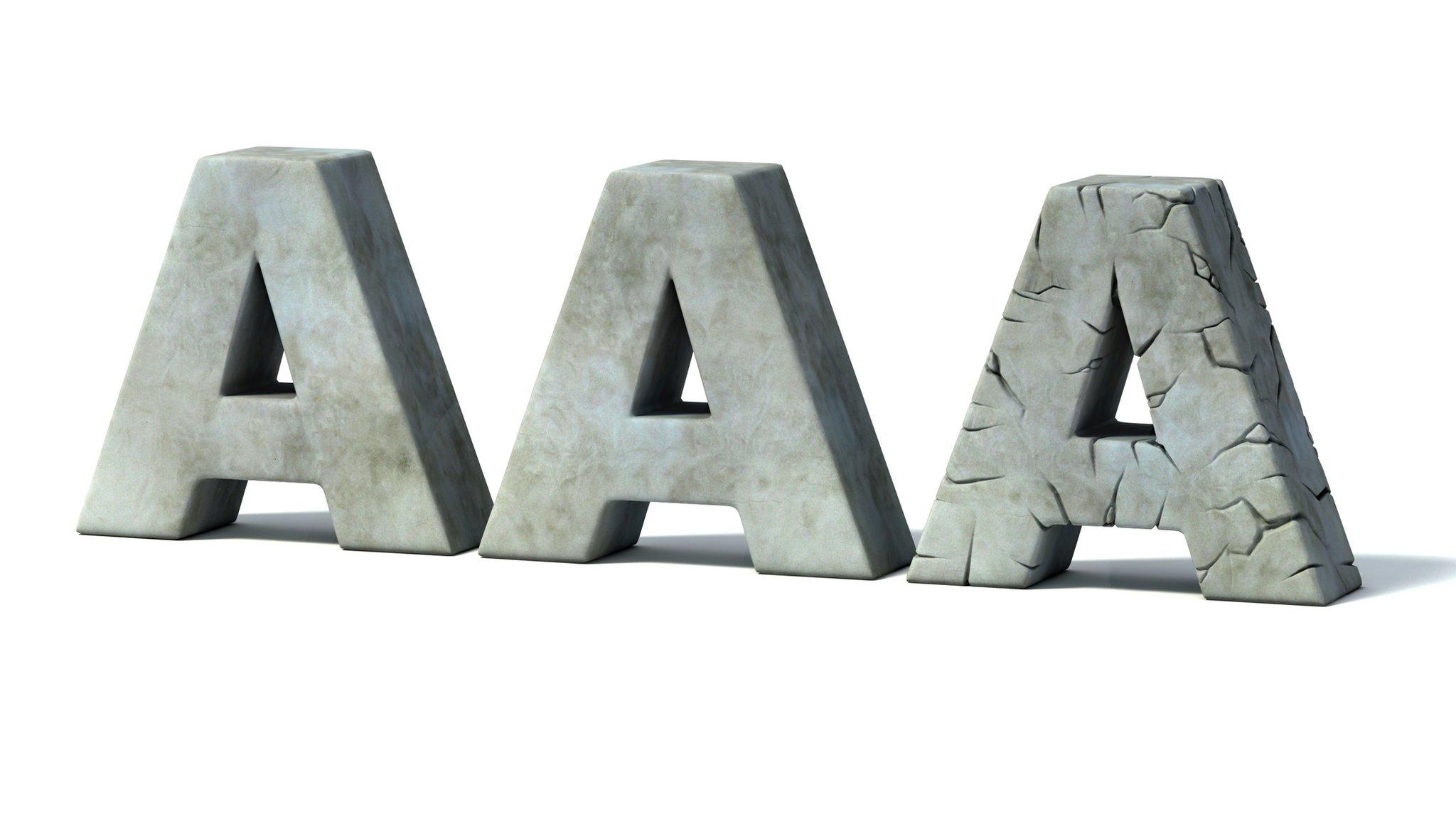The markets facing trading turmoil
- Published
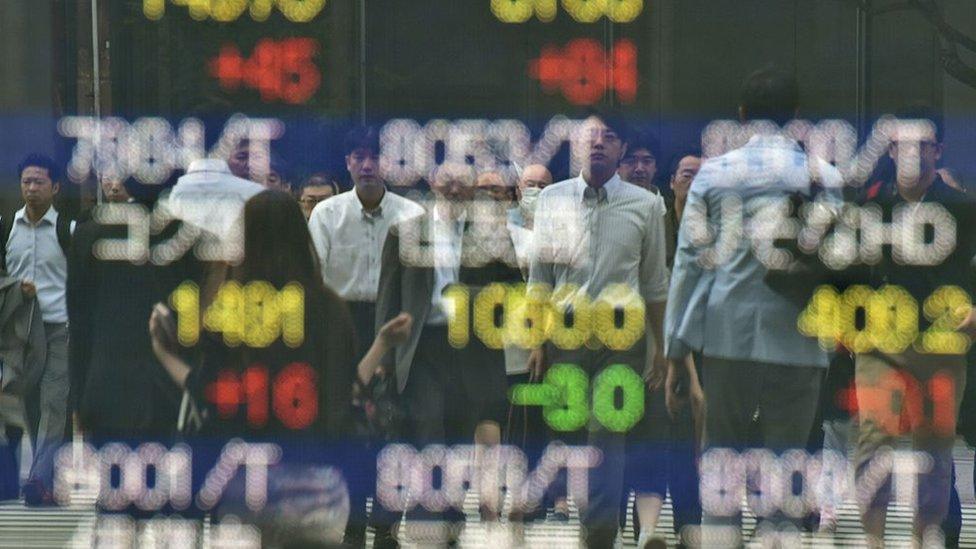
Global markets will face more sharp swings in the week ahead as investors assess the impact of British voters' decision to quit the EU.
The pound slumped on Monday to a fresh 31 year low and stock markets around the world extended a tailspin from Friday.
London's FTSE 100 fell by 2.5%, adding to a similar fall on Friday. And in Frankfurt, Paris, Milan and Madrid, stock markets fell 3-4% after closing as much as 12% down on Friday as investors contemplated the ramifications of a EU member leaving the union.
We consider the key markets to watch for the weeks ahead.
FTSE 100
The FTSE 100 is made up of the 100 most valuable companies whose shares are traded on the London Stock Exchange.
The index of "blue chip" stocks contains some of the UK's best-known businesses, such as the supermarkets Tesco and Sainsbury's, the banks Barclays, Lloyds and Royal Bank of Scotland and the mobile operator Vodafone.
In some ways the FTSE 100 is a better reflection of the global economy. Research by fund manager Capital Group found more than three quarters of the combined profits of FTSE-listed companies come from outside the UK.
So for many groups that generate revenues abroad, such as energy giants Shell and BP and miners like BHP Billiton and Rio Tinto, the sharp fall in the pound following the Brexit vote was good news.
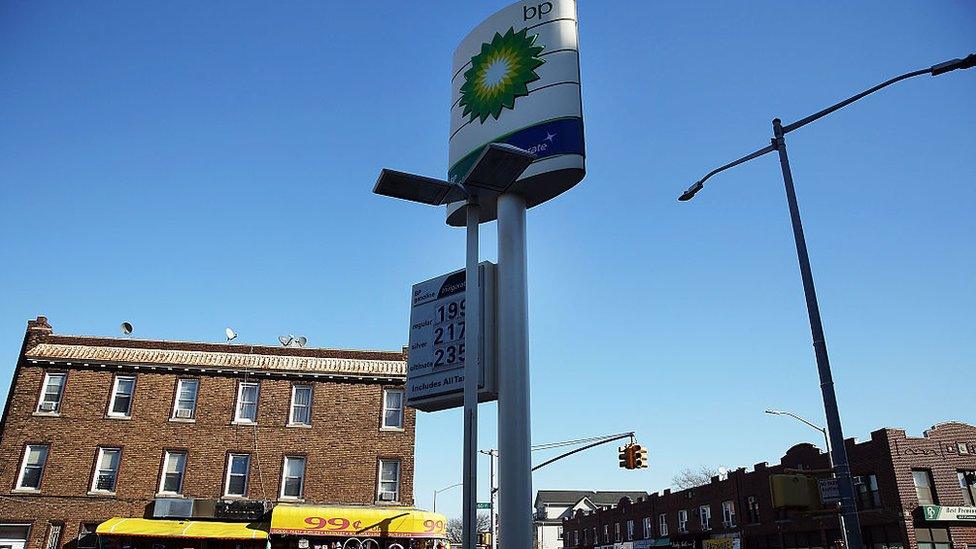
Share price movements on the FTSE 100 are likely to affect anyone with a pension because most pension funds have significant investments in the London stock market. The return on those investments will determine the value of a pension pot.
Individuals may choose to directly put their money in a company by buying shares. Any changes to the price of a company's shares can affect dividend payments as well as the return once those shares are sold.
Companies in the property and the banking sector were the hardest hit both on Friday and Monday by the Brexit vote.
Investors feared that some foreign buyers may now be put off from buying property in the UK.
London is the world's biggest financial centre outside New York and investors are concerned leaving the EU will prompt some banks and financial companies - which made significant contributions to the UK economy - to move jobs and businesses to centres such as Frankfurt and Dublin that remain inside the EU.
Despite the almost 200 point decline for the FTSE 100 after a near-500 point slide on Friday morning, the index closed 1.9% higher than the point at which it started the week.
FTSE 250
Companies on the FTSE 250 index make about half their sales in the UK, according to Credit Suisse.
It means that the businesses are a far better barometer of the health of the UK economy and on Friday it suffered its worst day on record.
The mid-cap index, which includes Domino's Pizza, Rentokil Initial and Britvic, slumped by 6.7% on Monday after a slide of 7.2% on Friday.
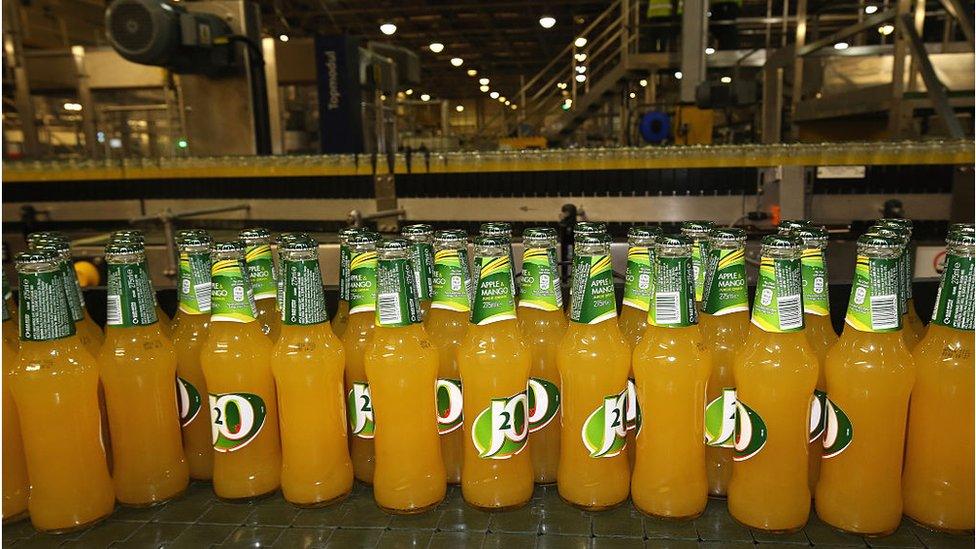
Britvic makes soft drinks such as J20
It mirrored the blue-chip index, with banks and construction companies hardest hit. Virgin Money lost 25 percent while builder McCarthy fell 19%. Property companies were also hit hard, with Jan Crosby, head of housing at KPMG , said house prices could fall 5% in the regions and slightly more in London.
Stock markets hate uncertainty. With no concrete timetable for when the government will start the process of leaving the European Union, volatility on the FTSE 250 is likely to continue.
Gold
Gold is typically referred to as a "safe haven" in times of crisis because it is viewed as a low-risk store of value.
The more worried people are, the higher the price of gold as demand increases. As the eurozone crisis worsened in 2011, gold soared to a record high of $1,910 an ounce.
Gold was up about 3% at $1,318 an ounce on Monday after jumping nearly 5% on Friday.
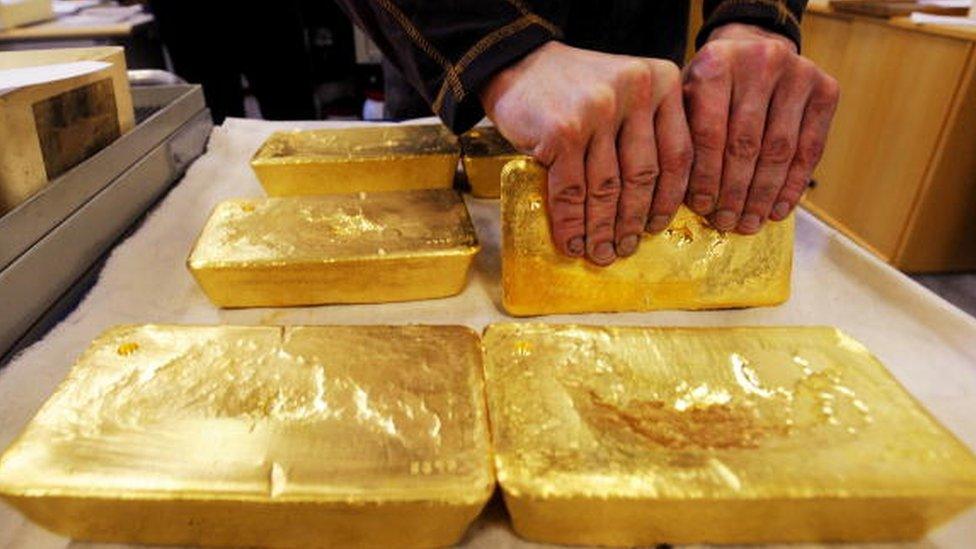
Precious metal miners have been the biggest gainers from the vote as investors move into companies that benefit from gold and silver's strength at times of market turmoil. Randgold Resources and Fresnillo topped the FTSE 100 on Monday after topping the leaderboard on Friday.
Gold is viewed as a long-term bet because it does not pay regular dividends, unlike shares in companies.
More savers may be drawn to gold if the Bank of England cuts interest rates. David Tinsley, UK economist at UBS, predicted a cut by the Bank in the next six months in a bid to offset slowing growth and a weaker pound.
Gold may also affect pension pots. Since 2014, certain retirement plans, such as a Self-Invested Personal Pensions, have been allowed to invest in high-quality physical gold.
Currencies
The biggest shock of the Brexit has been the slump in the pound against the dollar.
Before the vote on Thursday £1 bought $1.48 and €1.28. By Monday, £1 bought $1.32 and €1.19. For holidaymakers, going abroad is now more expensive.
For the wider economy, companies that export goods and are paid in foreign currencies such as the dollar will benefit when sending that money back to Britain. Weak sterling could also boost demand for British goods now they are cheaper.
However, it also means that imports become more expensive and businesses could choose to pass on those extra costs on to consumers.
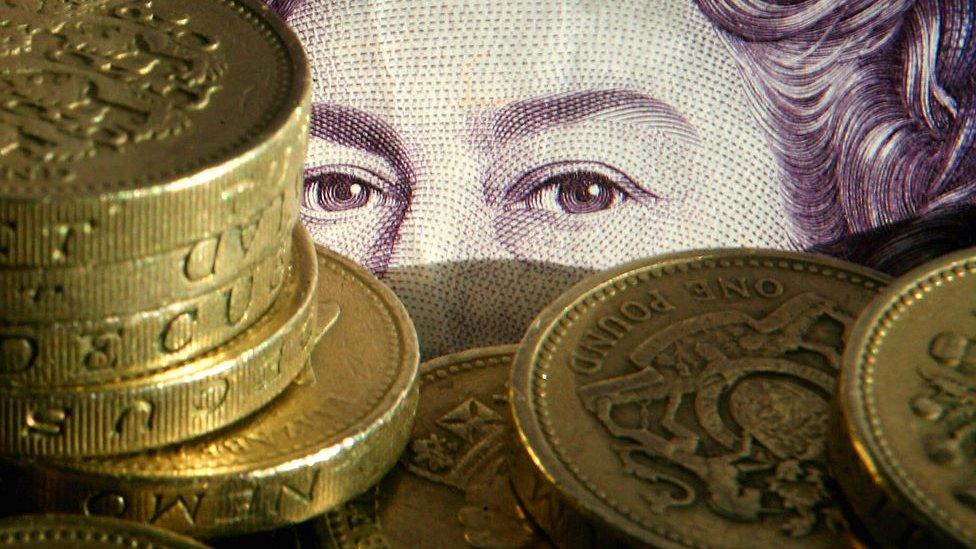
While Britain's trade gap - the difference between exports and imports - narrowed in April following a rise in overseas sales and demand outside the European Union, it was still £3.3b in the red.
Britain is yet to invoke Article 50 to leave the EU and there is great uncertainty about what deal the government, which is in a state of flux with an outgoing prime minister, can reach with the country's biggest trading partner.
David Lamb, head of dealing at FEXCO Corporate Payments said: "While a prolonged fall in sterling will help British exporters, the financial markets are entering an unknown future of extreme volatility. Such severe swings will create winners, losers and many sleepless nights."
Government bonds
Government bonds will be in the spotlight in the coming weeks. The interest rate, or yield, on a 10-year bond, an IOU issued by the government to raise money, fell on Monday to 0.947%, the lowest ever.
Usually low yields on bonds means there is very little chance of the government defaulting on that debt. German government bonds, for example, are seen as a very safe place to put cash and the yield is at record lows.
For Britain the fall is more to do with a promise by Mark Carney, Governor of the Bank of England, to provide £250bn of liquidity to UK banks.
The UK has had its credit rating outlook cut to "negative" by the ratings agency Moody's after the country voted to leave the EU. The other major rating agencies, Standard & Poor's and Fitch, are yet to react.
Any downgrade to the government's credit rating could make it more expensive to raise funds and in turn pay down debt - a situation that could be compounded by a slowdown in economic growth.
- Published24 June 2016
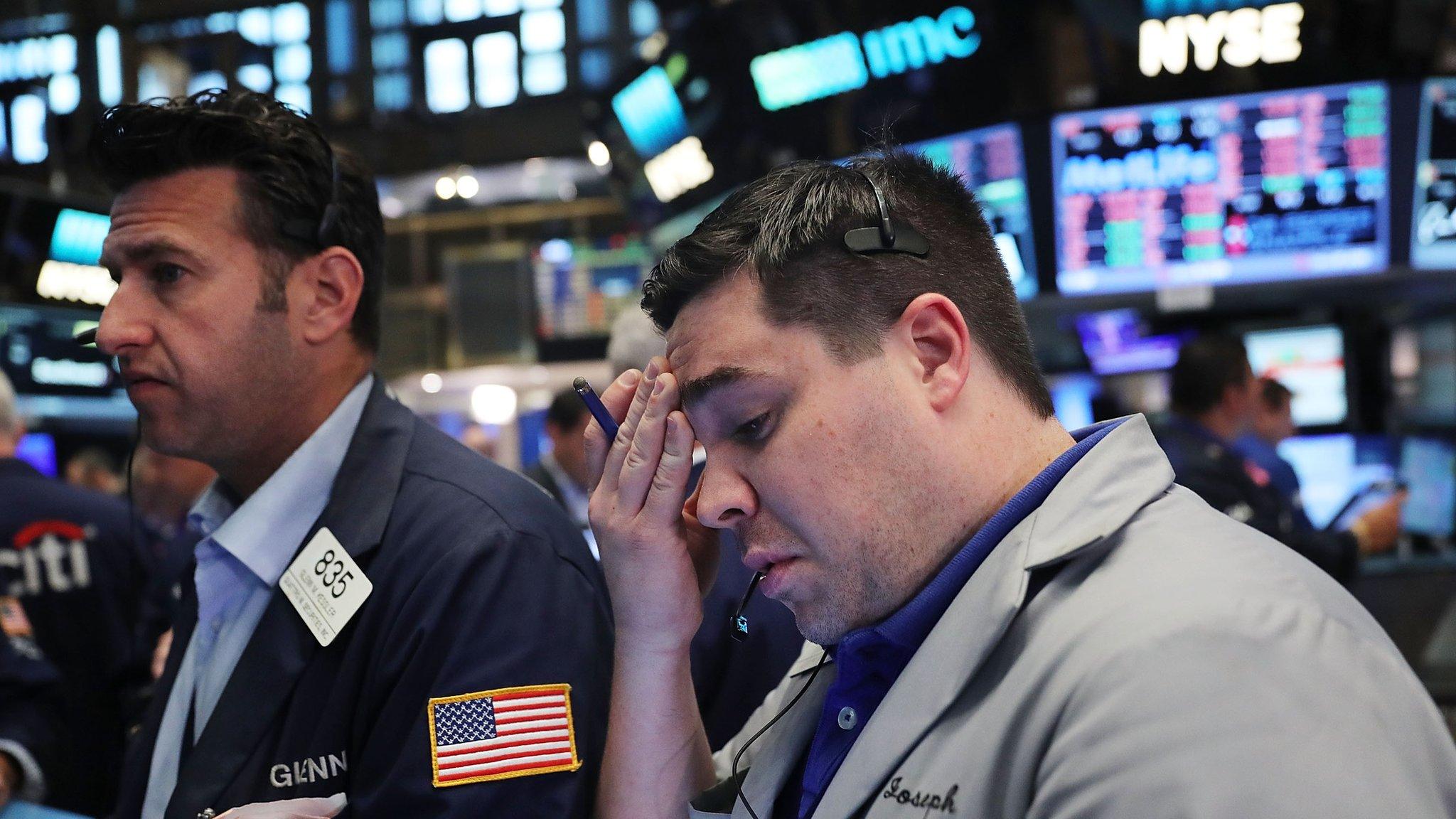
- Published24 June 2016
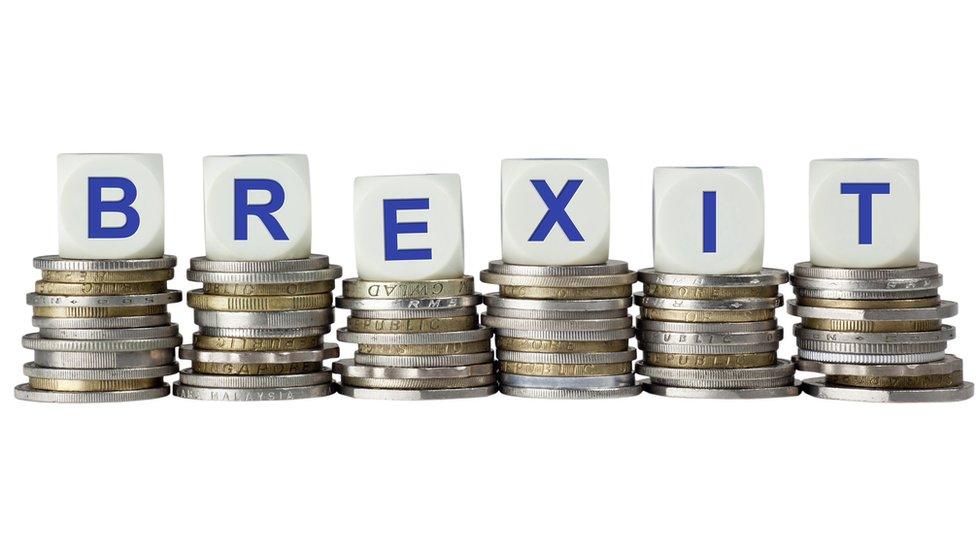
- Published25 June 2016
